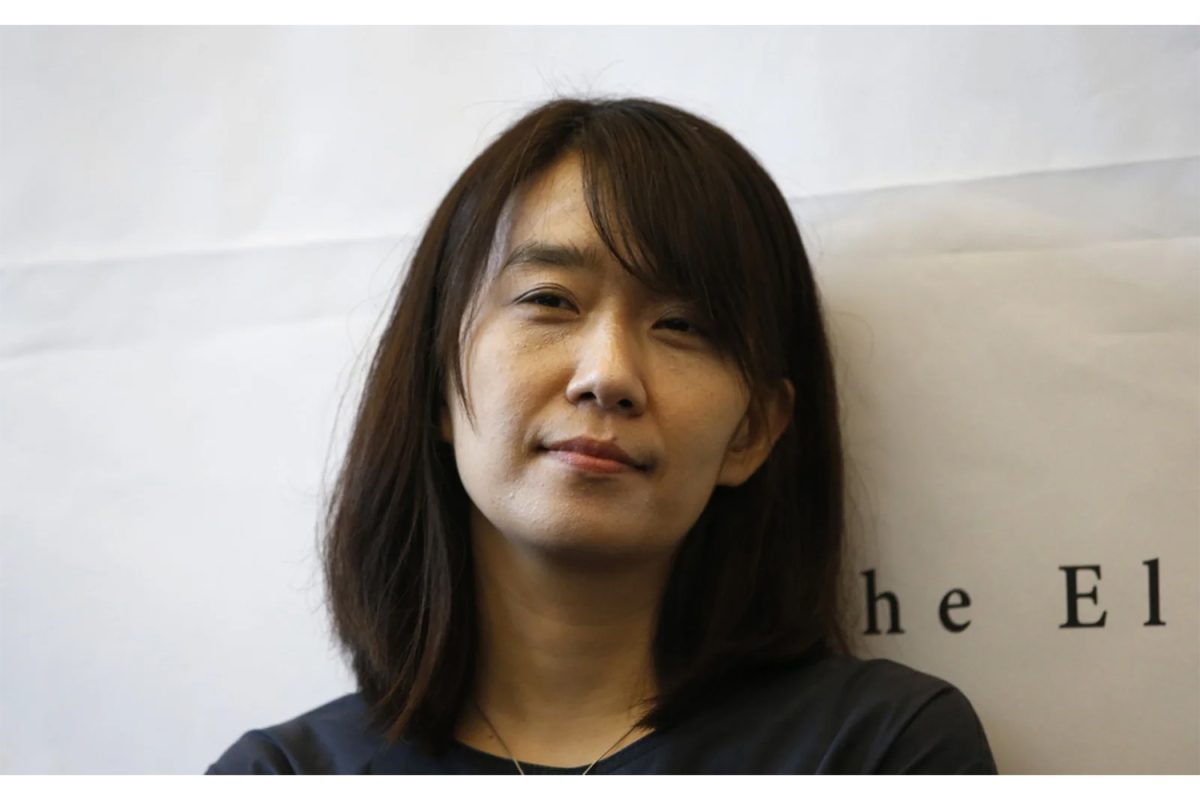1998 International Writing Program participant Han Kang has globalized Korean history and introspection as the first South Korean recipient of the Nobel Prize in Literature. But of course, Korean culture had cemented itself as prevalent in Western society long before her achievement.
K-dramas and K-pop have taken the forefront of pop culture recently. Over the past decade, K-pop streams on Spotify have increased by 107 percent in the United States alone and by 230 percent globally. Nationwide enrollment in Korean language courses has also risen by 78 percent since the early 2000s.
“It’s a double-edged sword. I remember as a kid nobody knew what ‘Korea’ was or thought extremely negatively about the country due to its association with North Korea,” Jenny Park, a University of Iowa freshman pursuing a Korean minor, said. “Nowadays, most people have heard of Korea through K-pop or K-dramas. They’re even able to recognize and name a lot of the food and traditions we have.”
The UI is among many campuses that also celebrate these traditions. It does so primarily through organizations like the Korean at UI Student Association, or KUSA, and the Korean Conversation Group, or KCG.
Sang-Seok Yoon offered insight into the academic areas that have also seen an influx of interest in Korean culture. Having earned his PhD in Korean linguistics, he is now the coordinator of the Korean Program at UI.
“We only offer the Korean minor here, but with the pop culture becoming popularized, there is more interest in our language classes and a greater motivation to learn about the country here since less than 10 years ago,” he said. “Korea has grown into one of the most important countries.”
While this is all the backdrop for Kang’s distinction, her work is revolutionary in comparison to other forms of Korean art. This is in part because the mainstream media carries an essence of deceit.
“Some people romanticize the country way too much,” Park lamented. “Korea has a slew of issues as a society that many people choose to ignore because it doesn’t fit their idealized vision of the country.”
Born and raised in the smaller, rural town of Gwangju, the author discovered the horrors of the Gwangju Uprising that bloodied Korean history at a young age. The uprising was a series of student-led protests against Chun Doo-hwan, who was the fifth president of South Korea from 1980 to 1988, that were suppressed by the South Korean military with logistical support from the U.S. Carter administration.
This event immediately raised questions for Kang regarding the cruelty and violence of humans. Consequently, she dedicated her prose writing to answering them, as seen in her 2014 novel “Human Acts.”
Sora Kim, a graduate assistant in the UI’s Korean program, read the book in one sitting.
RELATED: UI alum Juan Felipe Herrera awarded MacArthur Fellowship
“It asks how the government makes orders to kill its own people and how soldiers do that,” she said. “It also tells a history that some people say is just made up. Korea is very politically divided by two parties, like the right and left [in America], so most don’t want to publicly mention the Gwangju events because people interpret it as taking sides.”
Kang is one of few writers, politicians, and activists highlighting the deeply rooted issues of Korean politics.
“‘Human Acts’ is a valuable record of the stories in Gwangju that were otherwise not well-examined,” Yoon said.
While her work has its roots in a small Korean town, its message branches out globally to others who are also facing the same abuse of power.
“An event like the Gwangju Uprising happened in Jeju, too,” Kim said. “And I also read a book by Japanese scholars about how their government did a similar thing to people in Okinawa. Then you also have current global opinions on what Israel is doing in Palestine. To everyone, Han Kang winning the prize is a manifestation of massacre.”
Beyond the silenced history of Korea, she peels back more controversial layers of politics in Korea, delving deep into issues of feminism. Kang is not just the first South Korean to be awarded the Nobel Prize in Literature — but also the first South Korean woman. This is something both undergraduate Park and graduate assistant Kim feel passionate about.
“Being able to say that a Korean woman who studied at the UI won the Nobel Prize is a special experience,” Park said. “Even though that won’t happen to me or a lot of people, I think being able to think that we can have influence or success in our lives does wonders in helping us gain confidence to continue with our passions. It’s amazing to see someone similar to you in a position like that.”
Translating from Korean is harder than translating many other languages because its linguistics are complicated. Much of the sentence structure relies on context that can be omitted, whereas English relies greatly on the subject-object-verb order.
Despite people’s expectations, the translation of Kang’s novel prevailed. So empowering is her work that it transcends barriers of language, and her accomplishment left South Koreans shocked.
“This is a personal achievement recognized by the world, and Koreans always viewed the Nobel Prize as a long-term dream,” Yoon said. “But Han Kang’s work is phenomenal, and it stands out from other writers in that sense. It’s both universal and exists in the personal realm.”



